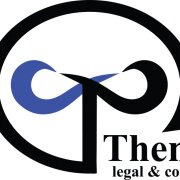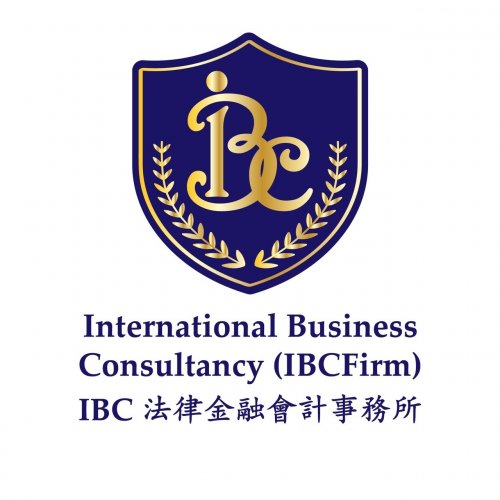Best Sustainable Finance Lawyers in Thailand
Share your needs with us, get contacted by law firms.
Free. Takes 2 min.
Or refine your search by selecting a city:
List of the best lawyers in Thailand
Legal guides written by SIAM LEGAL INTERNATIONAL:
- Defamation Laws in Thailand: Criminal Charges and Civil Suits
- The State of Thailand’s Long-Term Resident (LTR) Visa Program in 2025
- The Penalties Of Not Filing Your Income Tax Return As A Foreigner In Thailand
About Sustainable Finance Law in Thailand
Sustainable finance is an emerging field in Thailand that integrates environmental, social, and governance (ESG) factors into financial decision-making, investment, and policy. The primary goal is to promote long-term economic growth that is environmentally responsible and socially inclusive. Sustainable finance law in Thailand covers a variety of areas, such as green bonds, ESG disclosures, sustainable lending criteria, and responsible investment policy. In recent years, the Thai government and regulatory bodies have taken significant steps to place sustainability at the core of financial development - this includes the launch of frameworks and regulations to guide financial institutions, investors, and corporations in promoting sustainable practices.
Why You May Need a Lawyer
Legal support is vital for anyone involved in sustainable finance in Thailand, whether you are an investor, financial institution, corporation, or start-up. You might require a lawyer if:
- You are raising capital through green or sustainability-linked bonds and need to comply with Thai regulatory frameworks.
- You are a company preparing to disclose ESG information in line with new regulatory requirements.
- You are a financial institution developing products that must align with sustainable finance principles.
- You are faced with legal risks related to environmental or social compliance in your investments.
- You are seeking legal due diligence or contract reviews to assure that your projects meet sustainable finance standards.
- You need guidance on government incentives, tax benefits, or compliance programs tied to sustainable finance initiatives.
- You have questions about resolving disputes relating to sustainability claims, greenwashing, or ESG misrepresentation.
Local Laws Overview
Thailand’s sustainable finance framework is shaped by several laws and regulatory standards. Some of the most important aspects include:
- Green and Sustainability Bonds: The Securities and Exchange Commission (SEC) Thailand provides specific criteria for issuing green, social, or sustainability bonds. Issuers must comply with defined use-of-proceeds requirements and periodic reporting obligations.
- Listed Company ESG Disclosure: The Stock Exchange of Thailand (SET) mandates that listed companies report on their ESG activities. These disclosures must align with international standards and are subject to regular updates.
- Financial Product Guidelines: Banks and financial institutions must increasingly adhere to sustainable lending and investment criteria as guided by the Bank of Thailand and the Thai Bankers' Association.
- Government Policies: The government’s Thailand Green Taxonomy aims to standardize sustainable economic activities, helping lenders and investors identify projects that meet sustainability standards.
- Environmental and Social Compliance: Sustainable finance often intersects with environmental laws, such as the Enhancement and Conservation of the National Environmental Quality Act and other sector-specific regulations on social responsibility.
Frequently Asked Questions
What is sustainable finance in Thailand?
Sustainable finance in Thailand refers to financial services and investments that incorporate environmental, social, and governance (ESG) criteria to support sustainable economic growth and responsible development.
Who regulates sustainable finance in Thailand?
The Securities and Exchange Commission (SEC), Bank of Thailand, and the Stock Exchange of Thailand (SET) play key roles in regulating sustainable finance, including the issuance of green bonds, ESG reporting, and sustainable banking practices.
What are green bonds and sustainability-linked bonds?
Green bonds and sustainability-linked bonds are debt instruments where the proceeds are designated for environmentally or socially beneficial projects. They are subject to specific regulatory criteria and ongoing reporting in Thailand.
Do companies have to disclose ESG information?
Yes, listed companies on the Stock Exchange of Thailand are required to disclose ESG-related information as part of their annual reporting obligations, ensuring transparency and accountability to stakeholders.
Are there incentives for sustainable finance activities?
The Thai government and regulatory agencies offer various incentives, such as tax benefits or preferential financing, for projects that meet defined sustainability criteria, especially in sectors like renewable energy and green infrastructure.
What are the penalties for not complying with sustainable finance regulations?
Non-compliance can lead to regulatory sanctions, fines, suspension of public offerings, or reputational damage, depending on the nature and severity of the failure.
How do I ensure my project meets sustainable finance standards?
It is important to seek legal guidance to conduct due diligence, obtain proper certifications, and document alignment with applicable standards such as those provided by the SEC, SET, or the Thailand Green Taxonomy.
What is greenwashing and how do Thai laws address it?
Greenwashing involves misleading claims about the environmental benefits of a product or project. Thai regulations enforce transparency and accurate reporting, and violations can lead to penalties for misrepresentation.
How can investors verify the sustainability performance of Thai companies?
Investors can access ESG disclosures from listed companies through SET resources, third-party ESG ratings, and regulatory databases to assess the sustainability credentials of their investments.
Is international investment in Thai sustainable finance markets possible?
Yes, Thailand encourages foreign participation in sustainable finance markets. However, investors must comply with both local regulations and any applicable international standards.
Additional Resources
Below are some helpful resources and organizations for sustainable finance in Thailand:
- Securities and Exchange Commission (SEC) Thailand: Regulatory body for sustainable bonds and ESG disclosure requirements.
- Stock Exchange of Thailand (SET): Provides ESG disclosure frameworks and sustainability assessment tools for listed companies.
- Bank of Thailand: Offers policies and guidance for the banking sector’s integration of sustainable finance principles.
- Thai Bankers’ Association: Implements the Sustainable Banking Guidelines and promotes industry standards.
- Thailand Greenhouse Gas Management Organization (TGO): Supports carbon trading and monitoring for sustainability projects.
- Thai Bond Market Association: Provides information and support for green and sustainability-linked bond issuance.
Next Steps
If you need legal assistance in sustainable finance, consider the following steps:
- Identify your main legal needs, such as compliance, contract drafting, or dispute resolution.
- Gather relevant documents, including business plans, financial records, and project information.
- Contact a law firm or legal advisor with expertise in sustainable finance and ESG matters in Thailand.
- Prepare your questions in advance to maximize the efficiency of your legal consultation.
- Stay updated with changes in regulations by subscribing to alerts from key regulatory bodies.
- Consider ongoing legal support as part of your project’s sustainability management plan to ensure compliance and respond proactively to regulatory changes.
Legal guidance is essential in navigating Thailand’s evolving sustainable finance landscape. Professional legal support will help you achieve both compliance and your sustainability objectives.
Lawzana helps you find the best lawyers and law firms in Thailand through a curated and pre-screened list of qualified legal professionals. Our platform offers rankings and detailed profiles of attorneys and law firms, allowing you to compare based on practice areas, including Sustainable Finance, experience, and client feedback.
Each profile includes a description of the firm's areas of practice, client reviews, team members and partners, year of establishment, spoken languages, office locations, contact information, social media presence, and any published articles or resources. Most firms on our platform speak English and are experienced in both local and international legal matters.
Get a quote from top-rated law firms in Thailand — quickly, securely, and without unnecessary hassle.
Disclaimer:
The information provided on this page is for general informational purposes only and does not constitute legal advice. While we strive to ensure the accuracy and relevance of the content, legal information may change over time, and interpretations of the law can vary. You should always consult with a qualified legal professional for advice specific to your situation.
We disclaim all liability for actions taken or not taken based on the content of this page. If you believe any information is incorrect or outdated, please contact us, and we will review and update it where appropriate.
Browse sustainable finance law firms by city in Thailand
Refine your search by selecting a city.















